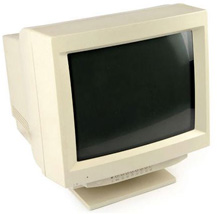5 TIPS FOR FALL HOUSECLEANING FOR WRITERS
Ah, fall…that most beautiful of seasons, bringing with it the bounty of the harvest, crisp days, frosty nights and abundant leaves swirling in autumn winds. And yeah, it’s also that time of year when many of us are looking ahead to the long winter, and having to spend more time in our offices because sometimes it’s just easier than going out in the snow to write elsewhere, or because we just feel more productive in our own spaces.
That means we also need to actually BE more productive there, and that means a bit of fall cleaning. One of the biggest areas where it’s easy to get behind is organization: clearing out unused clutter, filing, arranging and recycling. Here are five tips to help you get through this necessary task to keep you operating at optimum output for the closed-in months.
 PILES FOR MILES – Do you REALLY need all that paperwork that’s lying around in piles or stashed away in file drawers? Writers are, by nature, researchers, and that makes us all something of the packrat. But it’s amazing what you can live without if you just devote an afternoon to clearing out what you know you’ll never use again if you’re really honest with yourself. And if you can’t live without it, at least file it where you can actually find it when you need it. If you can’t afford the expense or space of a real filing cabinet, a carton of cardboard filing storage boxes is less than $20 delivered from most major office supply stores. Or, if you’re a visual organizer like I am, those see-through plastic drawer systems are available in either stationary or portable, wheeled “trolley” designs.
PILES FOR MILES – Do you REALLY need all that paperwork that’s lying around in piles or stashed away in file drawers? Writers are, by nature, researchers, and that makes us all something of the packrat. But it’s amazing what you can live without if you just devote an afternoon to clearing out what you know you’ll never use again if you’re really honest with yourself. And if you can’t live without it, at least file it where you can actually find it when you need it. If you can’t afford the expense or space of a real filing cabinet, a carton of cardboard filing storage boxes is less than $20 delivered from most major office supply stores. Or, if you’re a visual organizer like I am, those see-through plastic drawer systems are available in either stationary or portable, wheeled “trolley” designs.- FILING AND STORAGE – Many of us are left-brain thinkers and tend to be less than regimented in our filing and storage systems. But it truly does help to clear off the desktop and other surfaces in your office at least once a quarter. It’s a physical break from the day-to-day grind that translates into a mental break as well. So take a weekend every three months and file your papers, recycle any accumulated waste, and put things away. Do the same on your computer: back up your current files to an external drive, archive your old, completed jobs on CD or DVD (use good ones so you can depend on them and make a duplicate you keep securely off-site in case of an emergency or disaster), and get all those stray files off your cyber desktop. Not only does that visual clutter take its mental toll, the unfiled files lingering on your desktop actually slow your CPU down.
- BOOKS – How about all those books on your shelves? Are you really still using those “how-to” volumes you bought when you first struck out on your own? If not, donate them to your public library, especially if you live in a small town. These types of books might be the thing that helps another struggling freelancer on his/her way to success, and small libraries have very limited budgets, so may not otherwise be able to offer these titles.
- USER-FRIENDLY REFERENCE MATERIALS – If you haven’t already done so, arrange your reference books so that the ones you use most often are closest to you. It helps to have a desk with a few shelves for your thesaurus/wordfinder (and yes, the paper kind is still more thorough than the online versions), dictionary, usage/style guides, quotation collections, etc. right at your fingertips. And this may seem like a no-brainer, but it helps to have your research library arranged by topic if you write often in certain fields. I can’t believe how many people insist on an alphabetical or strict Dewey decimal shelving system. Shelve them the way you use them!
 RECYCLING – Sure, you’re probably used to recycling your paper, cardboard, plastic and glass. Even the most rural communities now have some sort of public recycling program. But what about all those hazardous waste items you’re not allowed to send to your everyday recycling? Many communities now hold recycling events in September or October that include collection of toxic materials, though some also schedule these events in April to coincide with Earth Day celebrations. Now’s the time to get rid of the little clutter of expired batteries (you’re NOT putting those in your regular trash, are you?) and old aerosol cans; the medium-size clutter of empty paint cans and old cans and jars of solvents or other noxious chemicals you used to spruce up the office but that you’re not going to use anymore; and the large space-eaters like old computers and CRT monitors. If the latter are still usable, consider donating them to a local private school or church, or listing them on your local FREEcycle online group (freecycle.org, an independent network that promotes waste reduction and helps save our landscapes from being taken over by landfills). Though many places will accept a limited number of these items and substances for free during these public collection events, many are moving toward a small fee-per-item for things like CRT monitors and TVs, to cover the disposal costs of the heavy metals contained therein. In our area, it’s $5 each during these events and sometimes a bit more if you just can’t wait and need to haul your items directly to a local recycling firm between public events.
RECYCLING – Sure, you’re probably used to recycling your paper, cardboard, plastic and glass. Even the most rural communities now have some sort of public recycling program. But what about all those hazardous waste items you’re not allowed to send to your everyday recycling? Many communities now hold recycling events in September or October that include collection of toxic materials, though some also schedule these events in April to coincide with Earth Day celebrations. Now’s the time to get rid of the little clutter of expired batteries (you’re NOT putting those in your regular trash, are you?) and old aerosol cans; the medium-size clutter of empty paint cans and old cans and jars of solvents or other noxious chemicals you used to spruce up the office but that you’re not going to use anymore; and the large space-eaters like old computers and CRT monitors. If the latter are still usable, consider donating them to a local private school or church, or listing them on your local FREEcycle online group (freecycle.org, an independent network that promotes waste reduction and helps save our landscapes from being taken over by landfills). Though many places will accept a limited number of these items and substances for free during these public collection events, many are moving toward a small fee-per-item for things like CRT monitors and TVs, to cover the disposal costs of the heavy metals contained therein. In our area, it’s $5 each during these events and sometimes a bit more if you just can’t wait and need to haul your items directly to a local recycling firm between public events.
